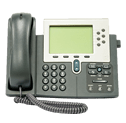Cloud Computers vs Local Computers. What’s the Difference?

Cloud Computing vs Physical I.T. Infrastructure.
What are the differences, advantages and disadvantages?
Is Cloud Computing really the best choice?
The decision depends on the needs of your business.
Many business are exploring the options when it comes to cloud computers versus physical machines. It’s a big decision to move your business’s data and computing power to the cloud. We will go over some of the key differences between cloud and local computers to take into consideration.
Factors such as price, data privacy and accessibility will impact the decision making process. The choice that is made to invest in either cloud or physical computers will be consequential to the success or failure of a company’s IT Strategy.
It can be difficult and costly to reverse course once the decision is made on which direction to take. Information Technology business plans are not one size fits all. The I.T. strategy of a business requires comprehensive planning, experience and expertise to execute effectively.

What is a Cloud Computer:
Simply put, a cloud computer floats in cyberspace and is not tied to a physical machine in your office. There is nuance to be aware of though. Businesses can create their own in-house Virtual Infrastructure (VDI) which can act as their own private cloud. Generally speaking though when the I.T. industry references “the cloud” it is talking about data centers hosting virtual computers for your business. Microsoft Azure and Amazon AWS are two examples of very large cloud computing organizations that most businesses use for their cloud infrastructure.
Cloud Computing could be as simple as one virtual computer spun up in the Amazon or Azure data center, or a complex virtual network consisting of virtual servers, virtual switches and virtual firewalls supporting hundreds to thousands of cloud computers.
Cloud Versatility:
The cloud is known for creating agility in the user experience. Having access to company computer systems anywhere you have internet is certainly an advantage. The Cloud is more than just a virtual computer. Cloud File Storage is one of the most common ways businesses leverage the power of cloud computing. Examples of Cloud File Storage that you are probably familiar with are Google Drive (Google Docs, Google Sheets), Microsoft OneDrive (Word and Excel in the Cloud), SharePoint File Storage, Microsoft Teams Files, Amazon WorkDocs, Amazon S3 for object storage.
When a physical computer crashes and needs to be replaced, it takes much longer than compared to replacing a cloud computer. The same applies for a computer setup needed for a new staff member. Cloud computers can be spun up (created) and deployed for the staff member in a matter of minutes.
Upgrades on cloud computers are also much faster. Computing resources such as memory (RAM), processing power and storage space can be allocated to a cloud computer with little to no interruption to the end-user. Usually an upgrade to computer resources takes minutes to complete.
Cautions on Cloud:
The Cloud offers a range of improvements to the user experience, but it is not the best solution for every organization. There are some cautions to be aware of. The cost of cloud can be more expensive. Cloud Computing is not necessarily a cheaper option. All of your computing resources become subscription based. Connecting to the cloud still requires a physical computer in the office to be used to connect into the cloud. This can be a much less expensive computer or terminal since the bulk of computing power is done in the cloud, but it is a cost nonetheless.
It is also important to recognize that in a situation where your company suffers a financial setback and is unable to pay bills on time, all of your company computer resources can be shut off, or even worse completely deleted for being delinquent in payment to your cloud vendor.
Cybersecurity becomes more complicated when operating in the cloud. The operations of your business are now taking place in large part on someone else’s computer systems. Your I.T. staff will not have full control of the infrastructure your business uses, thus the cybersecurity implementations to protect your information becomes much more complex. It is important to understand the Data Privacy laws for your industry as not to violate government regulations.
We Can Help:
JamKo IT Services provides technology solutions that meet the demands of Businesses across all industries. We were early adopters of the Cloud and are ready to assist your business in evaluating a move to the cloud or supporting an existing cloud infrastructure. Whether in the cloud or in your office, effective IT Support is our specialty.
In addition to Cloud Services, our Managed Security Solutions will help to keep your network safe from attack. Our Cybersecurity stack includes EDR (Endpoint Detection and Response to defend against malware), Patch Management, Data Backup, System Monitoring, Vulnerability Scanning, Web Security, Mobile Device Management, Email Security, Firewall Monitoring, 24x7x365 Help Desk, and more. Click here to read more of our Managed IT Services Blog.
Providing IT Support Across the United States:
239-249-3306 – SWFL
973-447-4277 – NE NJ
570-904-8992 – NEPA
1-888-995-2656 – NYC and Nationwide
Offices in North Jersey serving Morris County, Essex County, Sussex County. Including Parsippany, Morristown, Caldwell, Livingston, Summit, Springfield, Montclair, Bridgewater, Basking Ridge, Wayne, Plainfield, New Jersey.
Offices in Northeast Pennsylvania serving Lackawanna County, Monroe county, Wyoming County, Luzerne County, Carbon County, Pike County, Lehigh County. Including Scranton, Wilkes-Barre, Clarks Summit, Dickson City, Dumore, Mt Pocono, Stroudsburg, Tannersville, Old Forge, Jim Thorpe, Allentown, Easton.
Offices in Southwest Florida serving Lee County, Collier County, Charlotte County. Including Fort Myers, Cape Coral, Naples, Bonita Springs, Estero, Port Charlotte, Punta Gorda.
Offices in New York City serving Manhattan, Queens, and Long Island.
Offices in East Tennessee: Knoxville, Maryville, Karns, Rockford, Alcoa, Oak Ridge, Seymour, Sevierville, Pigeon Forge, Gatlinburg, Townsend, Lenor City, Kingston, Farragut, Powell, Jefferson City.


